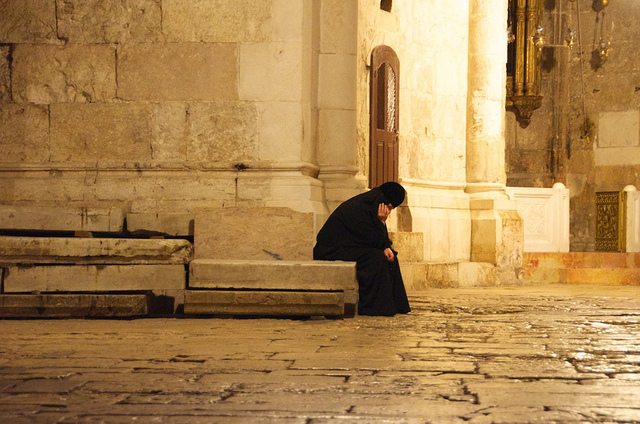In this week’s edition of our weekly newsletter, Scott suggests a practice to try when Advent (or any season) gets hectic: silence.
Dear friends in Christ,
Annually, right about this time of year, I suddenly realize that Advent is nearly over and Christmas is coming soon. I wish I could tell you this is a spiritual insight. But it is instead the pressure of sending cards, buying gifts, and preparing celebrations. It’s Advent preparation, but not necessarily in a good way. On a good day, I remember what Christmas and Advent are really all about and I regain my perspective.
For me, one of the most powerful and surprising ways I manage to center myself is with silence. Believe me, it doesn’t come naturally, which is all the more reason I need the practice. Maybe you’re a person for whom silence is a comfortable gift. If so, I commend you. Maybe you can tell us how you managed that in the comments or on social media. If you’re like me, I commend the gift of silence. Precisely because it is difficult, it is important. Silence rejects the urgency of our culture. Silence rejects the noise and the talking heads. Silence rejects agendas and opens our hearts to listen for God’s still, small voice.

Our liturgy demands some silence. Just after the breaking of the bread, the Book of Common Prayer requires silence. The rest of our liturgy is usually filled with constant motion and a surplus of words. But after breaking the bread, it’s as if the whole creation stops. Like on Good Friday. And in that bread-breaking, heart-breaking silence, we prepare ourselves to receive the gift of Jesus Christ in the Eucharist.
What if we managed to get everything to stop so we could prepare ourselves to receive the gift of Jesus Christ in our Christmas celebrations? Several years ago, when I was a parish priest, I had the idea to leave three minutes of silence after the sermon each Sunday in Advent. I knew that, for many, it would be an eternity. I was nervous, and I prepared myself for complaints and the failure of this experiment with silence. How wrong I was. After church, a number of people told me what a gift it was in this frenetic time to make space for silence. Even squirmy children – we had a lot of them at that church! – were affected by the mystical gift of silence.
I encourage you to try out the gift of silence. Spend a few minutes in silence alone. Pray or meditate or just let your mind rest. Try out silence at home. Maybe at dinner time, set aside a minute or two or five or whatever seems like just a bit too much. Savor the gift.
In quiet hope and silent preparation, I am,
Yours faithfully,
Scott Gunn
Executive Director



